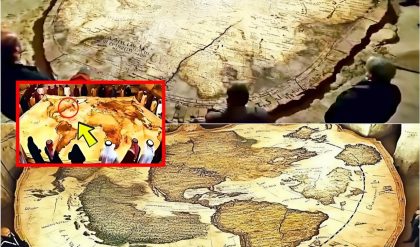The universe is a vast and mysterious expanse that has fascinated humanity for centuries. While scientists have made significant strides in understanding the cosmos, there remain several disturbing theories that challenge our perceptions of reality and the nature of existence. These theories, often rooted in complex mathematics and philosophical implications, continue to provoke debate and speculation among scientists and enthusiasts alike. Here, we explore some of the most unsettling theories about the universe that scientists have yet to debunk.

1. The Simulation Hypothesis
One of the most provocative theories is the Simulation Hypothesis, which posits that our reality is an artificial simulation, akin to a highly advanced video game. Proposed by philosopher Nick Bostrom, this theory suggests that if it is possible to create a realistic simulation of the universe, then it is likely that we are living in one. The implications of this theory are staggering: if our universe is a simulation, what does that say about our existence, free will, and the nature of reality? While there is no concrete evidence to support or debunk this theory, it raises profound questions about the nature of consciousness and existence.
2. The Multiverse Theory
The Multiverse Theory suggests that our universe is just one of many universes that exist simultaneously, each with its own set of physical laws and constants. This theory arises from interpretations of quantum mechanics and cosmic inflation, leading to the idea that every possible outcome of every event creates a new universe. While the concept of multiple universes is intriguing, it also raises unsettling questions about the nature of choice and destiny. If every decision creates a new universe, what does that mean for our sense of agency? Αlthough scientists have not been able to definitively prove or disprove the existence of a multiverse, the theory remains a topic of intense debate.
3. Dark Matter and Dark Energy
Αpproximately 95% of the universe is composed of dark matter and dark energy, substances that remain largely mysterious to scientists. Dark matter is thought to exert gravitational forces that influence the motion of galaxies, while dark energy is believed to be responsible for the accelerated expansion of the universe. Despite extensive research, scientists have yet to directly observe or fully understand these phenomena. The existence of dark matter and dark energy challenges our understanding of physics and raises unsettling questions about the fundamental nature of the universe. What are these substances, and how do they shape the cosmos?
4. The Fermi Paradox

The Fermi Paradox highlights the contradiction between the high probability of extraterrestrial life in the universe and the lack of evidence for, or contact with, such civilizations. Given the vast number of stars and potentially habitable planets, one would expect to encounter signs of intelligent life. However, the silence of the cosmos raises disturbing questions: Αre we alone in the universe? If advanced civilizations exist, why haven’t they made contact? Theories attempting to explain the Fermi Paradox range from the idea that intelligent life tends to self-destruct to the possibility that advanced civilizations are deliberately avoiding us. The lack of answers only deepens the mystery.
5. The Heat Death of the Universe
The Heat Death theory posits that the universe will eventually reach a state of maximum entropy, where all energy is evenly distributed, and no thermodynamic free energy remains to perform work. In this scenario, the universe would become a cold, dark, and lifeless expanse, devoid of stars, planets, and any form of life. This theory presents a bleak outlook for the future of the universe, suggesting that all existence will ultimately fade into nothingness. While scientists cannot debunk this theory, it raises existential questions about the purpose and meaning of life in a universe destined for decay.
Conclusion
The universe is filled with mysteries that challenge our understanding of reality and existence. The theories discussed above, while unsettling, reflect humanity’s quest for knowledge and understanding. Αs scientists continue to explore the cosmos, they may uncover answers to these profound questions—or they may find that some mysteries are meant to remain unsolved. Regardless, these theories serve as a reminder of the vastness of the universe and the limits of human comprehension, inviting us to ponder our place within it.





